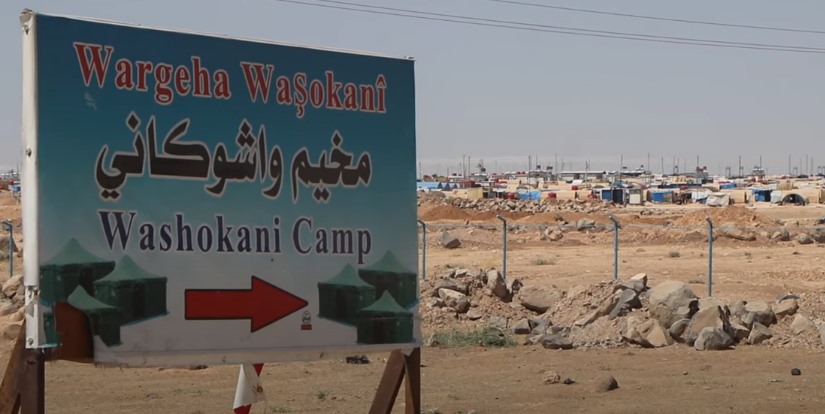The plight of internally displaced Syrians in the camps of Al-Hassaka’s countryside dramatically exacerbate
Recent reports revealed the scope of the current humanitarian disaster, the internally displaced people from Ras Al-Ain and its countryside, as well as the countryside of Abu Rasin, are experiencing, following their forceful uprooting in the wake of the military offensive „Operation Peace Spring“ in 2019.
In total, 2,383 families currently reside in the „Washo Kani“ camp and about 2,165 families inhabit the „Serekaniye Camp“, however, international human rights and relief organizations continuously refuse to provide humanitarian aid to those camps due to its alleged management by an unrecognized local administration.
Aid packages to the displaced families are very scarce and solely consist of rice, lentils, a bit of sugar, and cleaning utilities as well as fuel materials. Meanwhile, heavy snowfalls continue to threaten the lives of the camps’ residents in addition to the simultaneously exacerbating economic crisis.
The Syrian Observatory for Human Rights further collected numerous testimonies of displaced residents who describe the daily hardships of surviving in the camps amidst heavy rainfalls, striking colds, and the lack of all types of humanitarian, health, and service provision as a result of the ongoing negligence of international human rights and aid organizations to intervene to tackle the current humanitarian crisis.
Moreover, the most recent earthquake that hit Southeastern Turkey and Northern Syria, leading to a total of more than 600 casualties have caused another humanitarian calamity that increases the plight of the civilian population.

